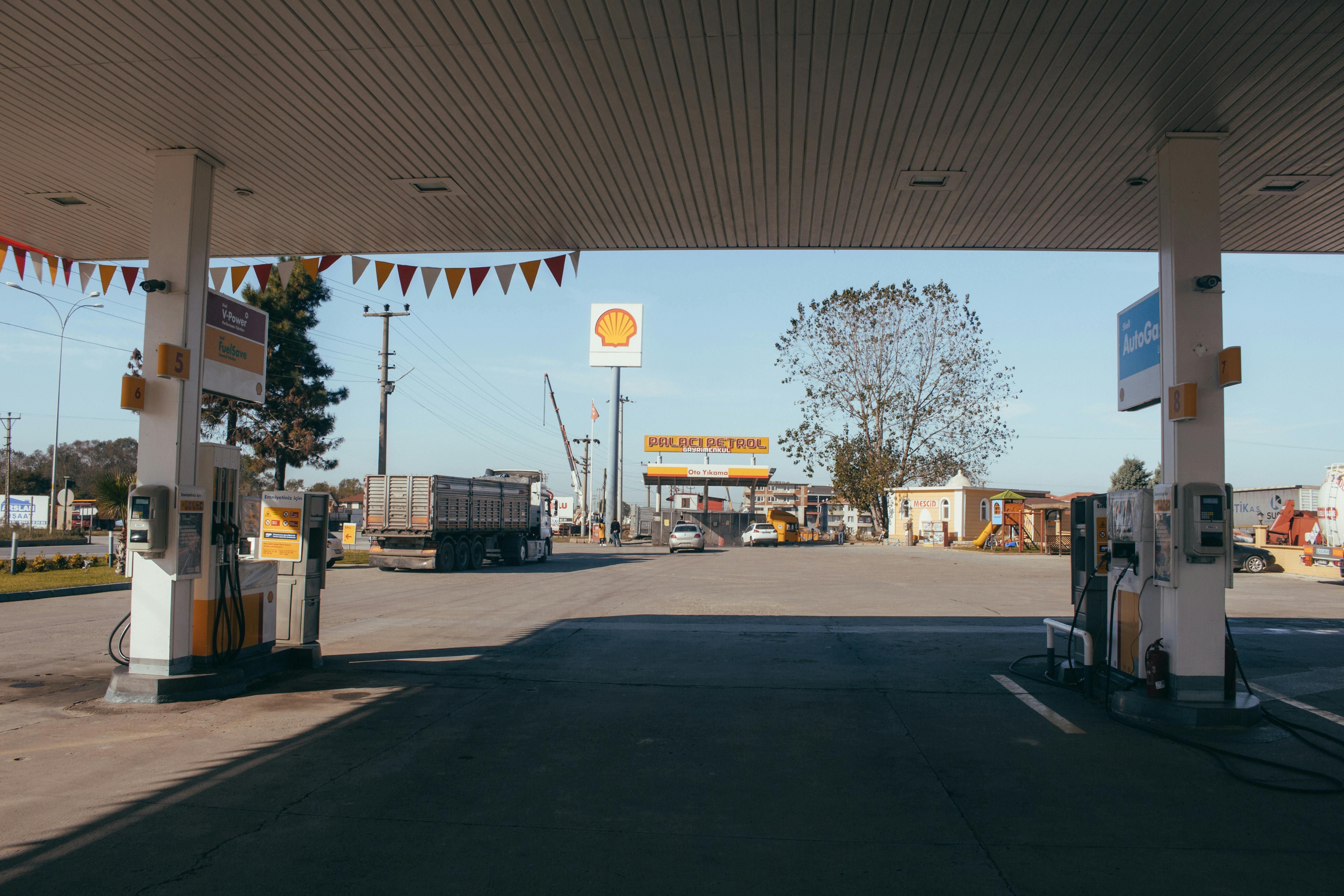Distillate fuel oil and diesel fuel are both petroleum-based products, but they are not the same. Distillate fuel oil is a refined product of crude oil that is used in a variety of applications, including heating and power generation. Diesel fuel is also derived from crude oil, but it is a less-refined product that is primarily used as a motor fuel for vehicles. While both fuels have similar origins, they have distinct uses and properties.Distillate fuel oil is a type of fuel oil that has been through the distillation process. It is typically used for heating and transportation purposes, such as powering diesel engines. Distillate fuel oil consists of hydrocarbons and traces of other elements, including sulfur, nitrogen, and oxygen. It also contains additives to improve its efficiency and performance. Distillate fuel oil is a complex product that requires careful handling to ensure safety and prevent pollution.
What is Diesel?
Diesel is a type of fuel that is primarily used to power diesel engines, which are widely used in the transportation, agricultural, and industrial sectors. Diesel fuel is made from petroleum and consists of hydrocarbons with between 12 and 20 carbon atoms per molecule. It is more efficient than gasoline and has a higher energy density, meaning it produces more power per unit of volume. Diesel engines are known for their efficiency, durability, and low emissions, making them a popular choice for many applications. Diesel fuel can also be used to generate electricity or as an alternative fuel for heating systems.
Diesel fuel has been around since the early 1900s when Rudolf Diesel developed the diesel engine. Since then, advances in diesel technology have led to its widespread use as both an automotive fuel and an industrial energy source. While diesel fuel is more expensive than gasoline, it generally provides better value in terms of both power output and longevity of the engine. Additionally, diesel-powered vehicles have lower emissions than their gasoline-powered counterparts, making them an attractive option for those concerned with air quality.
Distillate Fuel Oil and Diesel
Distillate fuel oil and diesel are two different types of fuel, but they are both derived from crude oil. Distillate fuel oil is a type of fuel that is produced through a process of fractional distillation, in which crude oil is heated and then separated into various fractions. The fractions that are produced can then be used to make different types of fuel, such as diesel and jet fuel. Diesel is a type of distillate fuel oil that has been further refined to meet the higher quality standards required for use in automobile engines.
Distillate fuel oil and diesel have several similarities, including their origin from crude oil and their composition. Both contain hydrocarbons that are made up of hydrogen and carbon atoms, as well as other compounds such as sulfur, nitrogen, oxygen, etc. In addition, both types of fuel can be used in diesel engines without modification. However, there are some important differences between them as well.
Diesel has a higher energy content than distillate fuel oil due to its more refined composition. This means that it produces more power per
Difference Between Distillate Fuel Oil & Diesel
Distillate fuel oil and diesel fuel are both derived from crude oil, but the two are quite different. Distillate fuel oil is a type of petroleum-based fuel that is used in many home heating systems, while diesel fuel is made from heavier oil and is most commonly used in automotive and industrial applications. Distillate fuel oil is typically much easier to ignite than diesel, making it the preferred choice for many residential heating systems. It also has a much lower sulfur content than diesel, making it cleaner burning. Distillate fuel oils tend to liquefy at higher temperatures than diesel, which makes them well suited for colder climates and easier to pump through residential pipes.
Diesel on the other hand can offer more power and torque than distillate fuel oil due to its higher viscosity which allows for more efficient combustion. Diesel also has a higher flash point temperature than distillate fuel, meaning it requires more heat to ignite. This makes it safer for industrial applications where there may be sparks or other sources of ignition present. Additionally, diesel engines tend to be more efficient than distill
Properties of Distillate Fuel Oil
Distillate fuel oil is a petroleum-derived product, which is widely used in the oil industry to power engines and boilers. It is composed of hydrocarbons and other organic compounds, and it has a wide range of properties that make it an ideal fuel source for many applications. Distillate fuel oil is defined as any fuel oil that has been produced through distillation, a process which separates out liquid fuels from other organic materials. This type of fuel has several advantages over other types of fuels, including its higher energy content, lower cost per unit, and lower emissions. Distillate fuel oil also has several properties which must be taken into consideration when using it in oil industry applications.
The most significant property of distillate fuel oil is its flash point – the temperature at which the vapor from the liquid ignites when exposed to a flame. The flash point must be above the expected operating temperature in order to ensure safety during use. Additionally, distillate fuel oils typically have high viscosity ratings which helps to reduce wear on engines and boilers over time. In addition,

Properties of Diesel
Diesel is a type of fuel commonly used for powering motor vehicles, generators, and other machinery. It is obtained from the distillation of crude oil and consists mainly of hydrocarbons ranging in size from C9 to C20. Diesel is composed of hydrocarbons that are saturated with hydrogen atoms, making it a combustible fuel that can be combusted in air. It has a higher energy density than gasoline, meaning it contains more energy per unit volume. Additionally, diesel has a higher flash point than gasoline and is less volatile, making it safer to use and transport. Furthermore, diesel engines provide higher efficiency and lower emissions than their gasoline counterparts due to the combustion process being more complete. The viscosity of diesel also differs from that of gasoline due to the presence of heavier hydrocarbons. This makes diesel more resistant to oxidation and thus prolongs its shelf life.
Overall, diesel is an efficient and relatively safe type of fuel that can be used for a variety of applications. It is important to note however that regular maintenance must be done on equipment using diesel fuel in order to ensure proper performance and emissions levels.
Uses of Distillate Fuel Oil
Distillate fuel oil is a type of petroleum product that has been distilled from crude oil. It is used as a fuel source in various industries, including transportation, agriculture, and power generation. Distillate fuel oil is composed of hydrocarbons, which are molecules made up of hydrogen and carbon atoms. These molecules can be found in many forms, including diesel fuel, kerosene, and home heating oil. Distillate fuel oil provides a reliable and efficient source of energy for many applications.
One of the most common uses of distillate fuel oil is for transportation purposes. It is widely used in automobiles, trucks, buses, ships, and airplanes as a source of power. Diesel engines are particularly reliant on distillate fuel oil for their operation. In addition to transportation uses, distillate fuel oil is used to power industrial machinery such as forklifts and tractors in agricultural operations.
Distillate fuel oil is also used as a heat source in many households and businesses around the world. Home heating systems are powered by distillate fuel oil when natural gas or
Uses of Diesel
Diesel is a type of fuel used in many different applications. It is widely used in the transportation industry, as it is cheaper and more efficient than petrol. Diesel engines are also used to power ships, trains, and other heavy machinery. In addition, diesel fuel powers many types of agricultural equipment such as tractors, harvesters, and other large vehicles. Diesel is also used to power generators and provide electricity to homes and businesses. Diesel is even used in some types of aircraft engines. In these applications, diesel provides the power needed to get the machine moving or keep it running.
Diesel fuel is also used for heating purposes in some areas. It is often used to generate heat for homes, businesses, and other places where natural gas is not available. Additionally, diesel fuel can be burned for cooking purposes when needed. It can be used to power stoves as well as ovens and grills for outdoor cooking.
Diesel fuel has long been an important part of the manufacturing process. It powers factories that produce everything from consumer goods to industrial supplies. It can also be used in industrial processes such as refining

Conclusion
Distillate fuel oil is not the same as diesel fuel. Distillate fuel oil is a type of fuel derived from crude oil, and it includes both diesel fuel and kerosene. It has a wide range of uses, including heating, powering industrial engines, and powering large trucks. Diesel fuel is a refined form of distillate fuel that is more commonly used for powering vehicles. Both fuels are composed of different hydrocarbon molecules, giving them different properties and uses.
In conclusion, distillate fuel oil and diesel fuel are both derived from crude oil but they are different products with different properties and purposes. Distillate fuel has a higher boiling point than diesel, making it more suitable for industrial applications such as heating or powering large engines. Diesel fuel has a lower boiling point, making it more suitable for powering vehicles.

